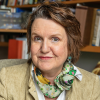In an effort to provide students with a more well-formed understanding of their professional roles and responsibilities, professional schools have for decades taught classes in professional ethics, which tend to cover crucial ethical standards, principles, and codes of conduct.
Rules, while essential, are insufficient for navigating the complexities of real-world ethical dilemmas because they may not address nuanced situations or evolving societal expectations. True ethical professionalism requires a deeper commitment to reflective practice and moral reasoning, as well as ongoing engagement with the broader impact of one’s professional decisions. Moreover, professional relationships are often formed in times of vulnerability (e.g., ill health, legal quandaries). A good professional acts competently, fulfilling responsibilities, maintaining confidentiality, and making choices in the best interests of those whose life outcomes depend on their professional expertise and judgment.
This dependability is especially necessary in situations involving conflicting interests or uncertainties. Professionals operate within contexts of extraordinary complexity. Legal experts must navigate evolving systems and unpredictable actors. Engineers must adapt to unexpected occurrences and consider frequent feedback to create robust designs. In medicine, professionals must account for multifaceted patient factors within diverse contexts, requiring a holistic view of biological, psychological, and social interactions.
Codes of conduct cannot fully address the demands and nuances of such complexity. Claiming otherwise or oversimplifying the issue leaves professionals ill-equipped to navigate the intricate, unpredictable, high-stakes challenges they face.
We advocate for a virtue-oriented approach to complement existing codes of conduct. As the authors of Virtue Ethics and Professional Roles assert, a lasting sense of professional identity is undeniably based on virtue. The impetus for a virtuous professional identity arises from a deep and collectively held sense of professional purpose. And sustaining that sense of professional purpose so that it can act as a North Star requires professionals to have an identity founded on seeing themselves as important moral actors who are essential to human flourishing.
Additionally, we believe that a robust professional purpose must be accompanied by the capacity to feel joy in one’s professional pursuits. The inability to do so is likely to lead to the stress and suffering discussed earlier, including burnout. Although discussing joy in the context of professional purpose may seem unconventional, it is central to a virtue ethics approach. It is important to note that the purpose of life, according to the Stoics and other ancient Greek philosophers, is eudaimonia, commonly translated as “happiness” or “joy.” Eudaimonia is the state of fulfillment, of possessing a good soul or having one’s reason function optimally, with virtue as the essential component. As we discussed earlier, virtue is crucial to developing an appropriate professional identity. Philosopher Christopher Gill describes virtue as “expertise in leading a happy life.”
The four cardinal virtues that Stoicism also promotes (wisdom, courage, justice, and temperance) are fundamental principles guiding ethical behavior in personal and professional life. We believe that Stoicism offers an extremely relevant virtue ethics framework for the discussion of professional purpose and identity.
[For more on our Stoicism-based approach, see: “Purpose & the Professions.”]





